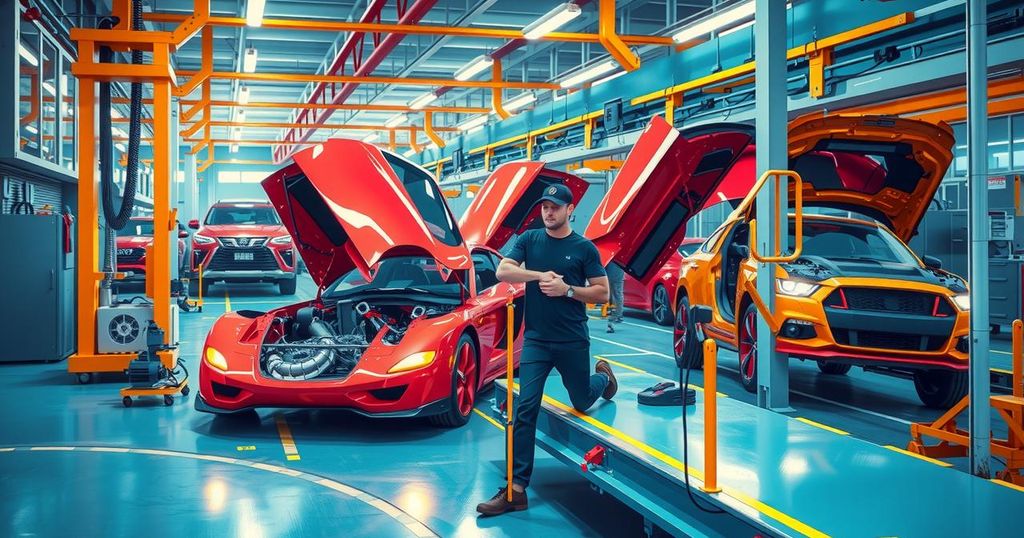Argentina’s automotive industry surged with production hitting 42,419 units in February, a 41.1% increase from January. Exports rose significantly, though slightly down from last year. ADEFA’s Martin Zuppi attributes growth to tax reductions and encourages further local government collaboration for competitiveness enhancements.
Argentina’s automotive industry experienced notable growth recently, with production levels hitting 42,419 units. This represents a 41.1% increase since January and a 13.1% rise compared to February 2024, as reported by the Association of Automotive Manufacturers (ADEFA). Vehicle exports also showed a remarkable increase, totaling 22,496 units, marking a 102.1% rise from January, although slightly down by 4.6% from February 2024.
In the early months of the year, automotive production increased by 20.5%, reaching 72,477 units, whereas exports fell by 13.5% to 33,628 units compared to the same period last year. Overall, wholesale sales of vehicles saw an impressive uptick, with figures reflecting 79,706 units sold in January and February, which is a 62.1% surge from the previous year.
Martin Zuppi, the President of ADEFA, credited the sector’s robust performance to recent tax reductions implemented by the national government. He called upon provinces and municipalities to adopt similar tax measures to enhance the competitiveness of the automotive industry. Zuppi emphasized that reduced local taxes would lower operational costs for automotive companies and bolster Argentina’s export capacity.
He noted, “With 18 working days of activity and even with some plants in recess due to vacations, as well as due to adaptation processes for new investments, the sector recorded a good performance in line with what was anticipated last month.” Zuppi also stated, “It is positive to observe the progress in the agenda items we have been working on together with the authorities. Any reduction in the tax burden generates an improvement in competitiveness and recovery of activity levels in all its variables,” highlighting the necessity for local governments to participate in enhancing the industry’s long-term viability.
In conclusion, Argentina’s automotive sector is currently experiencing significant growth driven by increased production and sales. While exports have seen fluctuations, government intervention through tax reductions is vital for fostering a more competitive environment. Continued collaboration between federal and local governments is essential for ensuring the industry’s sustainability and enhancing its export potential.
Original Source: en.mercopress.com






